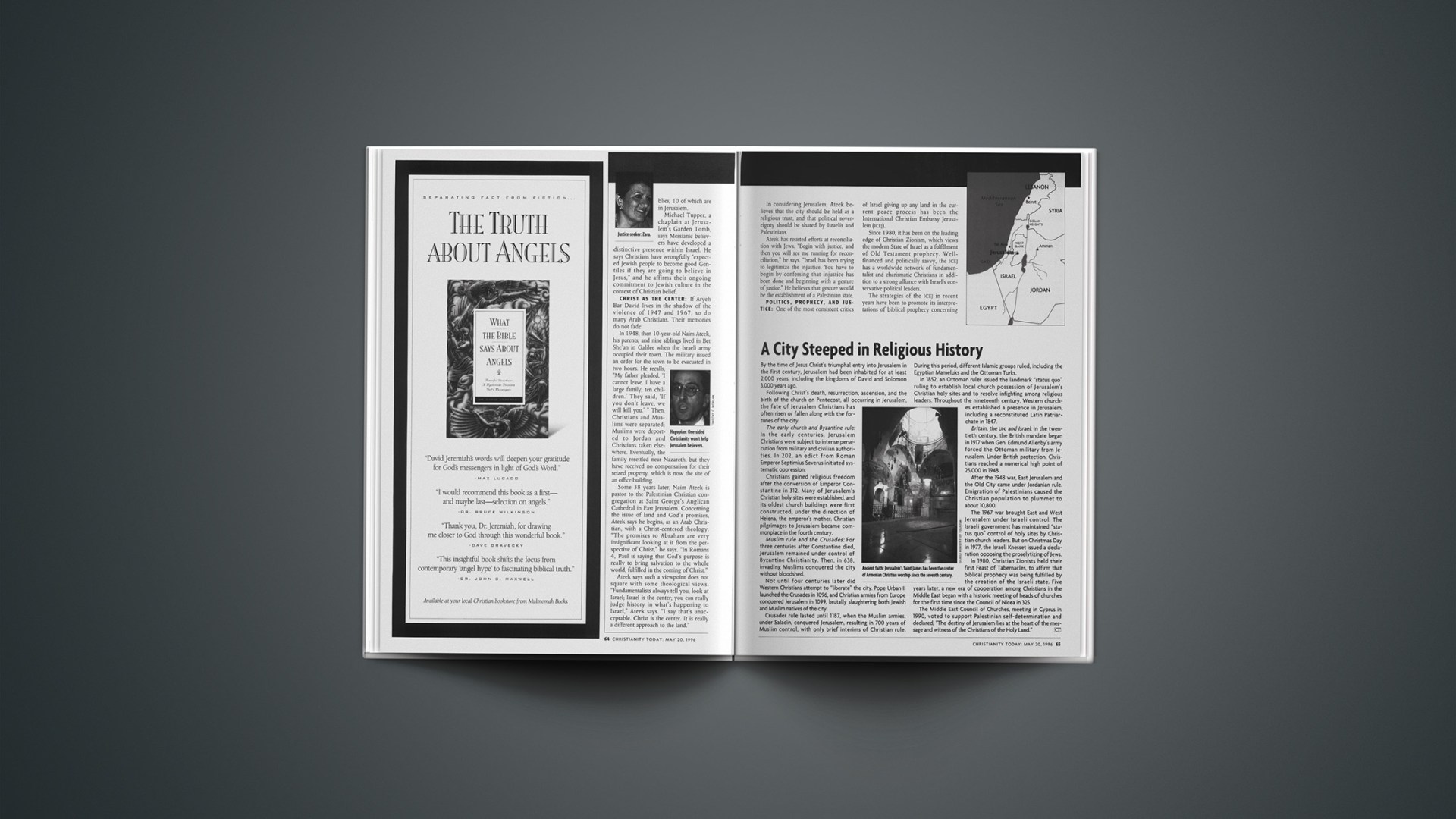By the time of Jesus Christ’s triumphal entry into Jerusalem in the first century, Jerusalem had been inhabited for at least 2,000 years, including the kingdoms of David and Solomon 3,000 years ago.
Following Christ’s death, resurrection, ascension, and the birth of the church on Pentecost, all occurring in Jerusalem, the fate of Jerusalem Christians has often risen or fallen along with the fortunes of the city.
The early church and Byzantine rule: In the early centuries, Jerusalem Christians were subject to intense persecution from military and civilian authorities. In 202, an edict from Roman Emperor Septimius Severus initiated systematic oppression.
Christians gained religious freedom after the conversion of Emperor Constantine in 312. Many of Jerusalem’s Christian holy sites were established, and its oldest church buildings were first constructed, under the direction of Helena, the emperor’s mother. Christian pilgrimages to Jerusalem became commonplace in the fourth century.
Muslim rule and the Crusades: For three centuries after Constantine died, Jerusalem remained under control of Byzantine Christianity. Then, in 638, invading Muslims conquered the city without bloodshed.
Not until four centuries later did Western Christians attempt to “liberate” the city. Pope Urban II launched the Crusades in 1096, and Christian armies from Europe conquered Jerusalem in 1099, brutally slaughtering both Jewish and Muslim natives of the city.
Crusader rule lasted until 1187, when the Muslim armies, under Saladin, conquered Jerusalem, resulting in 700 years of Muslim control, with only brief interims of Christian rule. During this period, different Islamic groups ruled, including the Egyptian Mameluks and the Ottoman Turks.
In 1852, an Ottoman ruler issued the landmark “status quo” ruling to establish local church possession of Jerusalem’s Christian holy sites and to resolve infighting among religious leaders. Throughout the nineteenth century, Western churches established a presence in Jerusalem, including a reconstituted Latin Patriarchate in 1847.
Britain, the UN, and Israel: In the twentieth century, the British mandate began in 1917 when Gen. Edmund Allenby’s army forced the Ottoman military from Jerusalem. Under British protection, Christians reached a numerical high point of 25,000 in 1948.
After the 1948 war, East Jerusalem and the Old City came under Jordanian rule. Emigration of Palestinians caused the Christian population to plummet to about 10,800.
The 1967 war brought East and West Jerusalem under Israeli control. The Israeli government has maintained “status quo” control of holy sites by Christian church leaders. But on Christmas Day in 1977, the Israeli Knesset issued a declaration opposing the proselytizing of Jews.
In 1980, Christian Zionists held their first Feast of Tabernacles, to affirm that biblical prophecy was being fulfilled by the creation of the Israeli state. Five years later, a new era of cooperation among Christians in the Middle East began with a historic meeting of heads of churches for the first time since the Council of Nicea in 325.
The Middle East Council of Churches, meeting in Cyprus in 1990, voted to support Palestinian self-determination and declared, “The destiny of Jerusalem lies at the heart of the message and witness of the Christians of the Holy Land.”
Copyright © 1996 Christianity Today. Click for reprint information.










